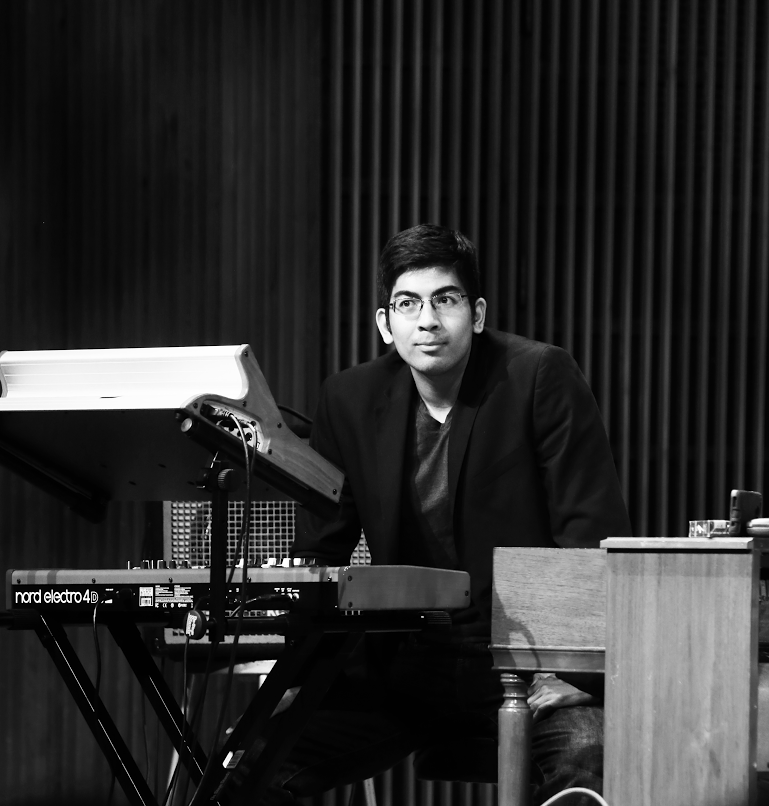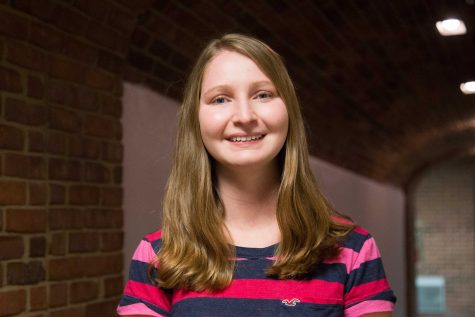- When did you realize you wanted to pursue music?
Well, I think it’s not necessarily a switch that flips. I’d say the first time I considered it was around age thirteen. I switched teachers then to a woman at the Pasadena Conservatory of Music, Dr. Susan Svrcek. There was a different intensity about the way she taught, and I really took a liking to it. This was still classical music. And I guess then I sort of had the idea that maybe music could be in the works for my future. But I was still really unsure. I mean, at thirteen we still don’t really know anything.
I think it was the summer before my sophomore year when I went to this piano camp called Indiana University Piano Academy, or IUPA for short. It’s an annual three-week summer program. And that was the first time I had really ever come into contact with such a large number of people who were all interested in piano.
Both my parents are engineers, so no one in the family is a musician. I was always in the dark in terms of what a future for a professional musician even looks like. How do I even pursue that path? Every path is different, I now realize. But how do I even get into that circle? So [IPUA] was the first time I really did that.
This past summer, I attended the Banff International Workshop in Jazz and Creative Music, spearheaded by Vijay Iyer. That was a really life-changing experience. That was three weeks as well. It had a similar effect but to a larger degree than the Indiana piano camp did. And so it propelled me to where I am today, which is knowing for certain that music is my path, if you want to call it a path.
- How does the Nashville music scene compare to other cities you’ve experienced?
Well, actually growing up in Los Angeles, I never really took advantage of the music scene out there. I was always sort of within Pasadena. I didn’t check out a lot in the greater Los Angeles area besides just the Walt Disney Concert Hall. But yeah, I got to Nashville and this was really my first experience in a music scene, so to speak. So I didn’t have anything to compare it with when I first got here.
I think Nashville is a unique blend of people looking to explore, but also to balance what’s safe. People think Nashville, and of course think country music. Everyone knows that. But there’s a very vibrant classical scene here, a new music scene as well. You have the Schermerhorn Symphony Center. But then also a pretty vibrant jazz scene. I mean it’s small, but it’s been growing over the years. That to me was what it was, and I didn’t have anything to compare it to.
But after this summer, I don’t think people give it enough credit for how strong it is. And just because it’s in the South or in Tennessee—people think “oh, the South,”—doesn’t mean that it’s somehow discredited. I’ve heard that a lot of New York musicians are starting to move down to Nashville and that’s partially because of the studio scene. The studios have been closing all over the country. And New York and Nashville are really the last two frontiers, if you will, of recording studios.
- Who is your inspiration?
This took me a while to realize, but there’s inspiration around us every single day. And if you’re aware of it and if you’re looking for it, I think that’s an important thing to realize. And on the same front, I think it’s dangerous to sort of deify one person and be like, “this person is the be-all, end-all” of whatever. But at the same time, you can take good and bad from everybody. So all my teachers throughout the years, whether they’ve just been music teachers or even just math teachers, you learn things from them like work ethic and discipline and these traits that you try to assimilate into your own life.
At the moment, if you ask me who’s my role model, I’d say someone like Jeff Coffin is certainly right up there. I study with him here, and he coaches the [jazz] combo. And getting to spend a lot of time with him has been really eye-opening in terms of just learning little things like the way he handles himself, the way he conducts himself, and the way he encourages other people, and being confident without being an asshole, those types of things.
Of course, you know I have to say my parents because my mom will probably read this! I say that jokingly, but she’s been there from the beginning, starting me on piano.
- What is the best piece of advice a teacher has given you?
Oh, that’s easy. Well, there’s two. Both from Jeff Coffin. His mantra is, “Serve the music, serve your fellow musicians, serve your audience, and you will be served.” So that’s my go-to mantra when it comes to music and how I live my life. Music as an act of service. We are instruments. And if your intentions and priorities are in the right place, then everything will fall into place.
The other bit of advice is sort of what I touched on earlier in the last question, which was, “You don’t need permission,” which were Jeff’s words verbatim. “You don’t need permission.” Because I was asking him, “How do you play with so many people, and how do you hold onto your own voice while still being respectful of other people in the ensemble?” Because he plays a lot of different kinds of music and, you know, I do as well. So that was his answer: “You don’t need permission.” And just really meditating on those words is pretty powerful.
- Do you have a pre-performance ritual?
I usually wear really strange socks when I perform. Maybe that’s my only superstitious thing. I like my banana socks and my Superman socks. But in terms of more practical things—though I do think socks are important—breathing. My friend Jordan Klein, who’s one of my best friends in the world, he introduced me to meditation and controlling your breath. It starts with controlling your mind. But since the mind and the body are so interconnected, I found over the years that if you can control one, you’ll have control of the other. And performance is all about controlling your mind.
- What are your practice habits?
I live my life by a schedule. This year I’ve been getting up at 4:30 a.m. every morning, just about. And then I go to the gym at 5 a.m. and then come back, and I eat and shower and get ready for school. I really love getting up early for a couple reasons. One, there are no distractions. Barely anyone else is up at that time, so you’re not getting any texts or emails or anything and you can just focus on the day at hand. And the other reason is that I think it really just prepares you. I mean it’s not easy. But to take that first step—and oftentimes that can be the hardest part of your day is just getting out of bed.
I try to be at Blair at the latest by 8 a.m.. So I get at least an hour of practice in before classes. I used to be a really late night practicer, but then I found that I’m not as productive so it’s just rearranging my schedule to fit my goals.
I practice between four and six hours a day. That’s the goal. Obviously, there are days when you can’t do that. When you’re really busy or you have gigs and performances and stuff. And maybe it’s counterproductive to practice six hours before you have to play a two or three-hour concert. And then before dinner, if I can get another hour in. After dinner, I usually reserve for other kinds of work. Or seeing live music or gigs or something, so I try to front load my day with a lot of the practicing.
- How do you deal with frustration when you’re practicing or when you’re composing?
For practicing, it’s been a lot easier since I started taking drum lessons. So it’s become my second instrument. When I get tired with piano or get frustrated beyond a degree where I can work it out, I’ll go practice drums. And when I get tired of drums, I go back to the piano. And so it’s just this ever-flowing cycle.
For composing frustration, nature is really my go-to way to unravel. Just go out in nature. Or just go walk around. Get out of the Blair School of Music, get off of Vanderbilt’s campus even. Even Centennial Park is super close and you can just go sit on the lawn or sit by the fake Parthenon and just enjoy the day.
- What do you like the most about collaborating with other musicians?
I think collaborating for me is a lot like having a conversation. So it’s just getting different perspectives on something. On a topic that you think you know, thought something about, and maybe you do. But then someone comes at it from a different perspective, and it’ll open your eyes up to another side of what’s out there, or what’s real, or what’s possible.
- What has been the highlight of your Blair years so far?
I’d say a couple things. Within the school has been the academic freedom and the ability to explore so much of what this school has to offer. Taking jazz voices lessons, taking arranging lessons with Ryan Middagh, taking lessons with Jeff [Coffin], and taking drum set. Just being able to access so many parts of the school and what it has to offer. So that’s been incredible and really hugely influential in my development.
[The highlight of] being in Nashville has been meeting all of the musicians. When you meet different musicians, you realize how much you have in common. A lot of times you’ll have the same mentality that music is a way of service or act of service, and oftentimes it’s very spiritual. But then also you just get new ideas and a lot of creative minds all in one place. So that for me has been the coolest part. And second to that would just be all the live music that I’ve seen here. It’s just so cool.
- What do you feel was your best performance?
The next one! I don’t know; it’s hard for me to quantify. And I don’t mean to play devil’s advocate, but that’s just my philosophy. It matters when it’s in the moment. Then before and after the fact, it doesn’t mean anything. So I’m always striving to give the best performance. And for me, that just means being completely in the moment. And it’s a process. So yeah, the witty answer of course is “the next one.”
I can say I really enjoyed playing with the orchestra, Rhapsody in Blue, last semester. That was really fun. It’s the mentality of always striving to do my best. For me, life is about growing and constantly moving forward.



